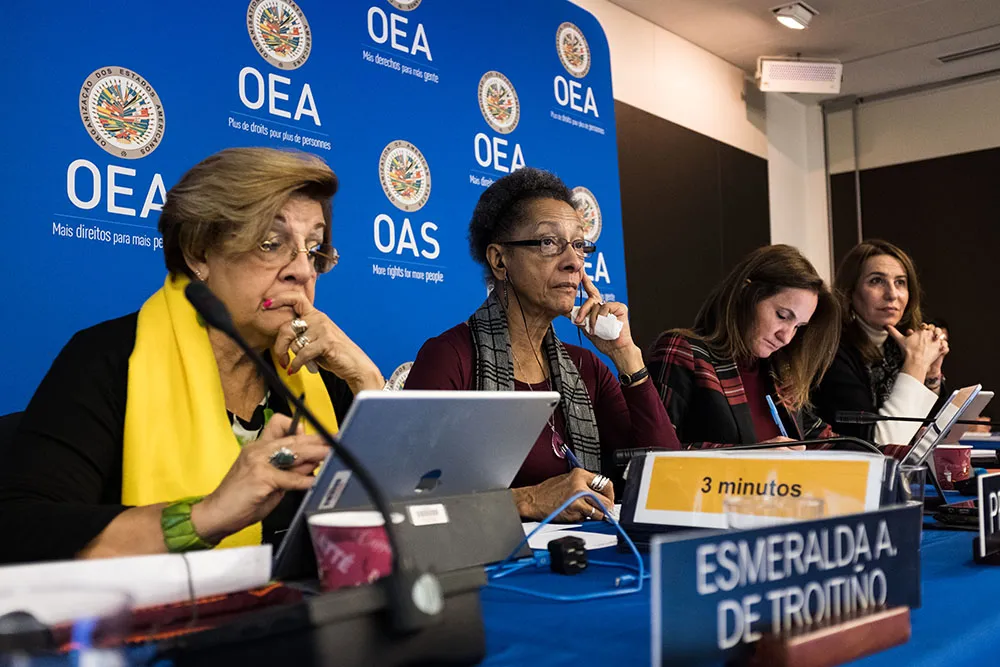Master of Legal Studies

Commissioners at an Inter-American Commission on Human Rights (IACHR) panel. Image credit: IACHR.
Learn about the Online MLS with an emphasis in Indigenous peoples law and policy.
As part of the nationally and internationally recognized premier program for the study of law, policy and human rights concerning Indigenous peoples, this emphasis in Indigenous peoples law and policy offers a master’s level curriculum open to candidates seeking to build expertise in this area and who have at a minimum a bachelor’s degree. Students will receive professional training to address the complex issues facing Indigenous peoples today, developing a proficiency in federal Indian law, Indigenous human rights, Indigenous community and economic development, and the protection of cultural and natural resources. The MLS emphasis in Indigenous Peoples Law and Policy can be fulfilled online.
* Indicates courses offered in person and/or online
Required MLS Core Courses (15 UNITS)
- LAW 501* - Procedure (3 units)
- LAW 502A* - American Common Law System I (3 units)
- LAW 502B* - American Common Law System II (3 units)
- LAW 504* - American Public Law System (3 units)
- LAW 507* - Legal Analysis, Writing, and Research (3 units)
Required Courses for this Emphasis (3 UNITS)
- LAW 550A* - Native American Law and Policy (3 units)
Electives (12 UNITS)
- LAW 527 - International Human Rights and Indigenous Peoples
- LAW 540A* - Introduction to International Human Rights
- LAW 554* - Environmental Law and Policy
- LAW 556* - Family Law
- LAW 567* - Tribal Courts Practice and Procedure
- LAW 567A - Government Power in Indian Country
- LAW 568* - Tribal Criminal Law and Procedure
- LAW 568A - American Indians and Civil Rights
- LAW 569* - Native American Family and Domestic Relations Law
- LAW 643D* - Native American Natural Resources
- LAW 696I* - International Environmental Law
Some substitutions may be permitted with the approval of the program director. Availability of non-LAW electives is at the discretion of the offering college or department and may incur additional costs.
